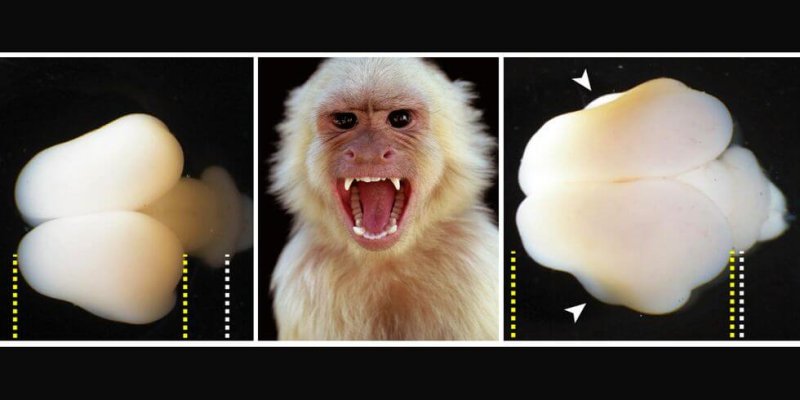Researchers from Germany’s Max Planck Institute of Molecular Cell Biology and Genetics in Germany and Japan’s Central Institute for Experimental Animals introduced a specifically human gene, ARHGAP11B, into the fetus of a common marmoset monkey, causing the enlargement of its brain’s neocortex. The scientists reported their findings in Science.
The neocortex is the newest part of the brain to evolve. It’s in the name—“neo” meaning new, and “cortex” meaning, well, the bark of a tree. This outer shell makes up more than 75 percent of the human brain and is responsible for many of the perks and quirks that make us uniquely human, including reasoning and complex language.
The scientists call these human-monkey hybrids “transgenic non-human primates,” which may be enough to ring the alarm of any doomsdayer. It certainly raises a lot of ethical questions when doing experiments on primates, let alone when introducing human genes into other animals.
For this reason, the researchers limited their study to monkey fetuses, which were taken out by C-section after growing for 100 days. Allowing the experiment to go past the fetal phase and let the human gene-carrying monkeys to be born would be irresponsible and unethical, study coauthor Wieland Huttner said in the press release.































